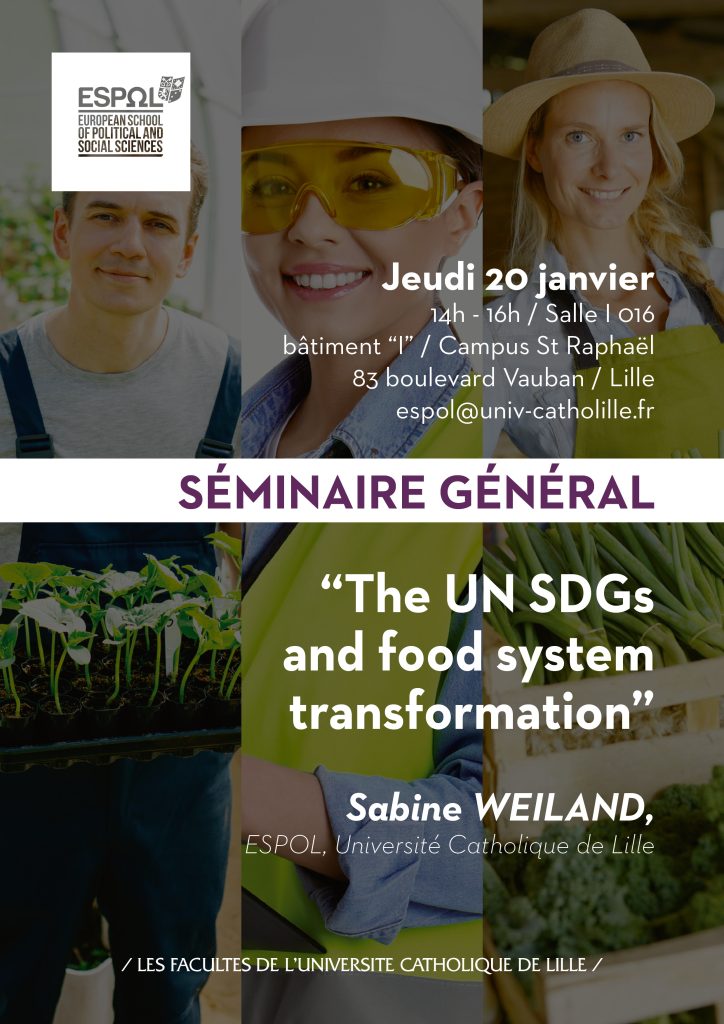[SEMINAR GENERAL] “The UN SDGs and food system transformation” – 20 January 2022
Abstract
The 2030 Agenda for Sustainable Development, adopted by the United Nations in 2015, presents a comprehensive set of 17 Goals to address major global challenges, including poverty, health, inequality, climate change, environmental degradation, peace and justice. Characteristic of the Sustainable Development Goals (SDGs) is the novel ‘governance through goals’ approach. In contrast to rule-based governance, goal-based governance works through establishment of priorities, i.e. the goals to be attained, for which resources and attention are mobilised to achieve them. In this presentation, I propose ‘reflexive governance’ as a blueprint for SDG transformation governance in the remit of the ‘governance through goals’ approach. Given the complexity and interconnectedness of sustainability problems (and the SDGs), reflexive governance refers to a governance mode that is capable of creating feedback on existing regulatory frameworks and institutions with the aim of stimulating reflection and setting off transformation processes. Reflexive governance will be elaborated using the transformation of food systems as an example to study the challenges of dealing with complexity and interlinkages between goals, which is crucial for SDG implementation.
Sabine Weiland is Associate Professor of Political Science at the Université Catholique de Lille, and Director of the ESPOL Research Centre for European and International Politics.
